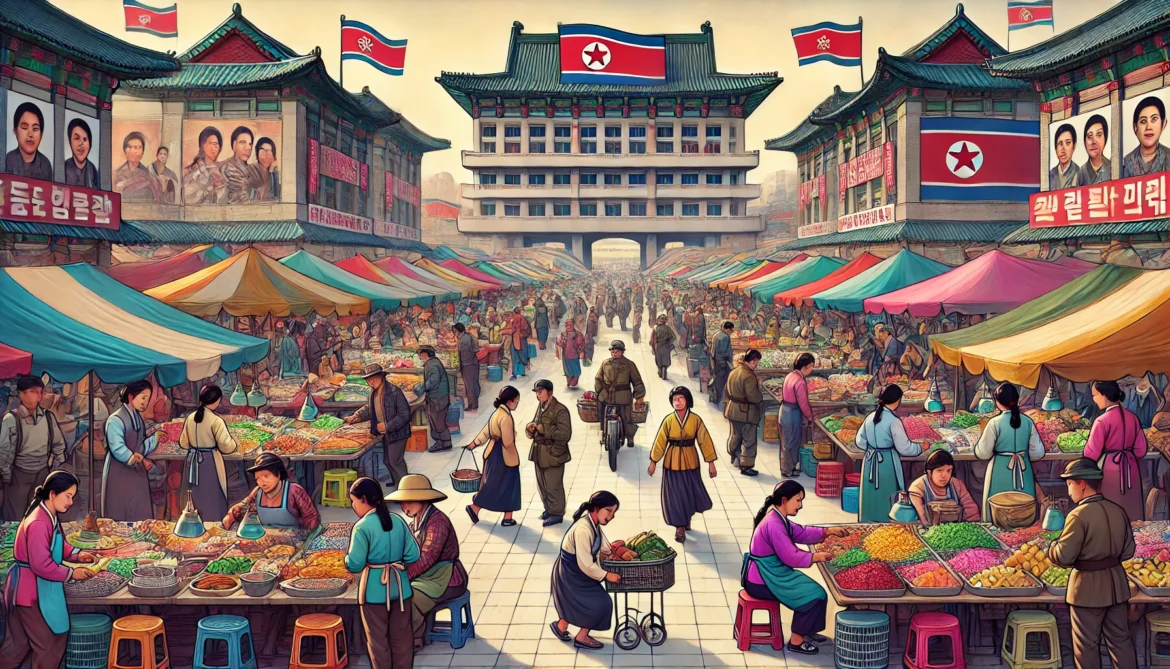North Korea presents itself as a hermit kingdom under strict supervision of the Kim dynasty. The State’s official philosophy, Juche, embodies collectivism in its finest norm: unimaginable isolation of the nation, opposition to Western values and total obedience to the leader of the party. This in itself presents exact opposition to the libertarian ideal, which on the other hand, focuses on society with open borders, free market and the rule of the law.
Despite this contrast, even libertarians can learn something from the current state of affairs in North Korea on closer inspection. According to reports from before the Covid-19 pandemic, women accounted for about 80% of the market, which mostly consists of small marketplaces, bazaars and farmers’ markets. This economy is obviously informal and officially denied by authorities, but its existence was necessary for ordinary people to survive to live another day.
The development of such an informal economy, particularly one with a significant female presence, appears paradoxical. This is especially true when viewed through the lens of the North Korean regime, which prides itself on ideological purity and the collectivist goals of Juche. However, the reality of the North Korean economy has often been at odds with the state’s ideals. The question arises: How could a market so antithetical to the regime’s philosophy thrive despite the government’s strict control over every aspect of the country’s economy and society?
The answer lies in the country’s recent history. Economic collapse in the 1990s following the disintegration of the Soviet Union led to widespread famine that killed an estimated 800,000 to 1,500,000 people. After this experience, people partially turned their back on the formal economy and started to participate in the grey market, so called Jangmadang, which was due to corruption tolerated. Another part was played by necessity, because Jangmadang arose alongside the system of distribution, which was not able to even keep alive a huge portion of the population during famine due to its inefficiency and people rather directed their activities towards the market, which was more reliable in fulfilling their needs.
All this however, does not explain why it was an opportunity for women to utilize this opportunity more than men. Firstly, we need to understand that Korean society, in both the northern and southern parts of the peninsula, is strongly influenced by Confucian traditions and historical context, which uphold patriarchal values. Young girls in North Korea learn that they are not equal to boys, which translates into personal life, for example domestic violence is widely tolerated and overlooked even in public, but also into working life, where prestigious positions are occupied most of the time by men. In 2016 only 4.9% of diplomats and 16.5% of officials in the ministry of the foreign affairs were women. On one hand, this systematic discrimination prevents women from coveted jobs in the state administration. On the other hand, it gives them an edge over men, who are often forced to work in ‘honour’ jobs with lower wages than what is possible to get in Jangmadang, or in some cases even in unpaid jobs. Due to these reasons, most of the time, it’s the woman’s job to trade and be the breadwinner at home. However, it is important to keep in mind that this progress and empowerment of women can be very slow and is in contrast with traditions and state policy which can lead to state suppression.
One example of how easily previous achievements in building parallel informal economies could be dismissed was the global pandemic of Covid-19. A huge step back was taken due to new severe restrictions imposed by the government to supposedly quell the spread of the disease to protect its citizens. However, these restrictions were in many cases unnecessary and appear to be a means by the government to return back to the tightly controlled economy, including closed borders with China, access to information and distribution of goods. All these new regulations hit women all the harder, because their activities were more tied to the market. No worries are needed though, as we have seen many times in history, the only real question is how long it will take for the government to realise that its citizens need the market to distribute the necessities of life.
North Korea may seem like the least likely place to witness a shift toward classical liberalism, free trade, equal rights, or personal liberties. Yet, the persistence of the female-dominated market, despite the oppressive state control, shows that even in one of the most tightly controlled societies in the world, markets can emerge, and individuals can claim some degree of control over the lives they have been given. The idea that social change can come not through top-down reforms but from the bottom up, fueled by necessity and the collective efforts of ordinary people, holds significant promise for future transformations, even in regimes as oppressive as North Korea.
This piece solely expresses the opinion of the author and not necessarily the magazine as a whole. SpeakFreely Magazine is committed to facilitating a broad dialogue for liberty, representing a variety of opinions. Support freedom and independent journalism by donating today.
